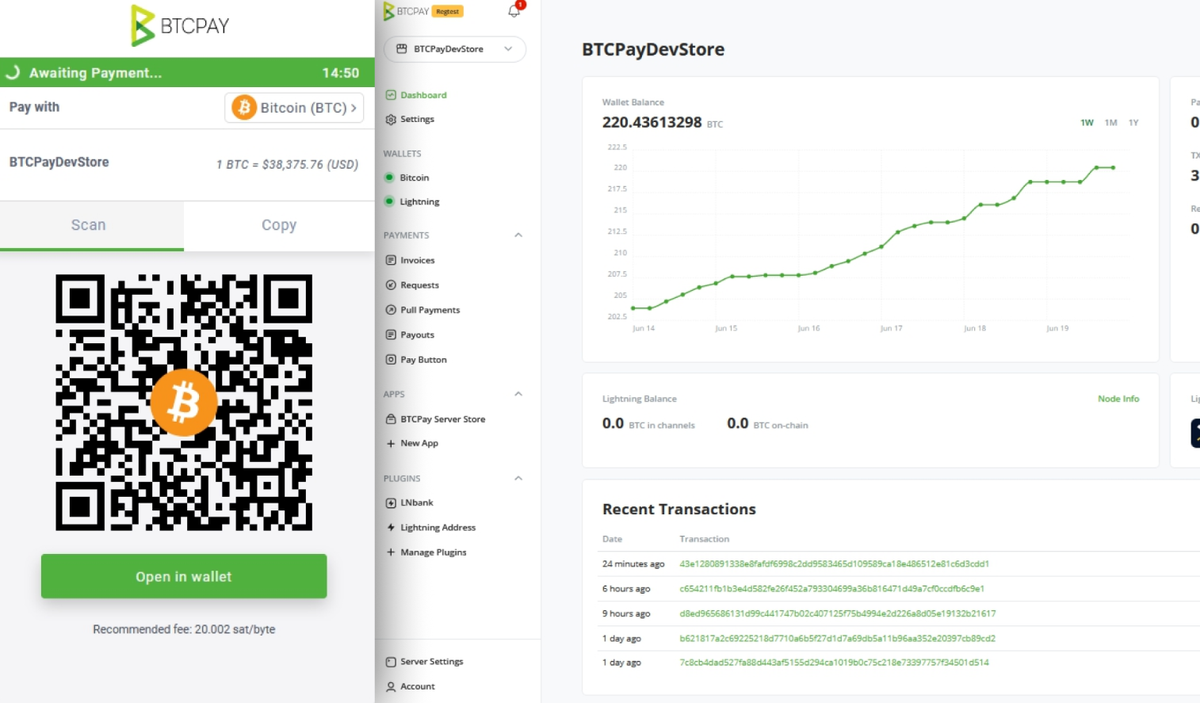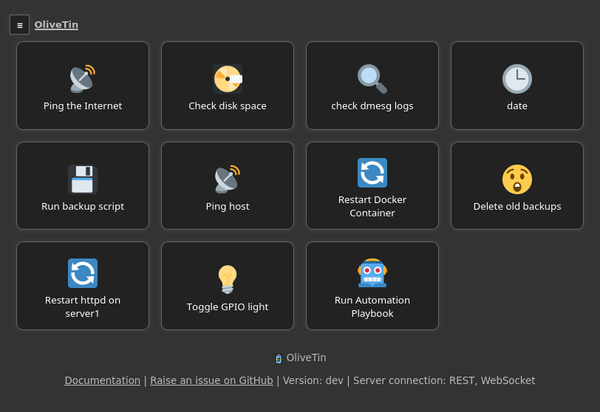10 Free Self-hosted Crypto Payment Solutions

What is a Crypto Payment Gateway?
A Crypto Payment Gateway, as its name suggests, is a specialized type of payment platform designed to enable businesses to accept payments in various forms of cryptocurrencies. This digital service is an integral part of the expanding world of blockchain technology and decentralized finance.
At its core, the Crypto Payment Gateway facilitates the direct transfer of digital currencies from customers to businesses. This is achieved by converting the cryptocurrencies used in the transaction into a fiat currency that the business can readily use for its operations.
This process of conversion is done seamlessly and efficiently, thus allowing businesses to embrace the growing trend of digital currencies while still being able to operate within the more traditional fiat currency system.
Benefits of a Crypto Payment Gateway
- Lower Transaction Costs: Traditional banking systems and online money transfers usually involve fees and exchange costs. Cryptocurrencies may minimize these costs.
- Fraud Reduction: A payment made with Bitcoin cannot be reversed after the fact, which can protect businesses from the potential for fraudulent chargebacks.
- Immediate Transactions: Crypto transactions can be faster than traditional methods, which often involve banks or other intermediaries.
- New Market Opportunities: Crypto can be used anywhere around the globe, which can expand a business's potential market.
- No Intermediaries: Cryptocurrency, as a decentralized form of currency, eliminates the need for intermediaries like banks or payment services.
Open-source Self-hosted Crypto Payment solution?
An open-source Self-hosted Crypto Payment solution is a payment platform that allows businesses to accept cryptocurrencies directly, without the need for any third-party intermediaries. Because it's open-source, it can be freely used, modified, and distributed by anyone. This means businesses can have full control over their payment processes.
Pros
- Control and Flexibility: Businesses have full control over their payment systems and can customize the open-source software to meet their specific needs.
- Cost Savings: Open-source software is usually free to use, which can significantly reduce costs compared to using third-party services.
- Transparency: Open-source software is transparent, which means its code can be inspected for bugs or vulnerabilities, leading to improved security.
- Community Support: Open-source projects often have active communities, which can provide support and contribute to the software's development.
- No Transaction Fees: Being self-hosted, businesses don't need to pay transaction fees to third-party services, allowing them to keep more of their profits.
Cons
- Limited Support: Unlike proprietary software, open-source software may not offer dedicated customer service or support.
- Technical Knowledge Required: Setting up and using open-source software requires technical expertise, which may not be available in all businesses.
- Trust Issues: Since anyone can modify open-source software, it may pose trust issues for some businesses, and yet before installing or updating the solution the user is required to check for modifications and security.
- Management Difficulties: Managing and maintaining an open-source software requires resources and time, which can be challenging for businesses.
Best Self-hosted Open-source Free Cryptocurrency Payment Gateway
1. SHKeeper
SHKeeper is a self-hosted, open-source cryptocurrency gateway payment processor. It can be integrated with popular CMS, any e-commerce platform or your own custom code or product. SHKeeper works by improving the efficiency of receiving crypto payments through full integration into existing systems.
SHKeeper has a wide range of features. It automatically detects all your crypto wallets and can process payments into other wallets. It supports various cryptocurrencies, including BTC, LTC, DOGE, Monero, Ripple, Ethereum ERC20 (ETH), and Tron TRC20 (USDT, USDC, TRX).
The application can be integrated into your project independently, or with assistance through one of their tariff plans. Installation can be done via Kubernetes, Docker, or the Cloud. It also provides the ability to customise it according to your needs.
The SHKeeper team has a detailed roadmap for the future, which includes numerous improvements, additional features, and support for more cryptocurrencies.
2. BTCPay Server
BTCPay Server is an innovative, free, and open-source Bitcoin payment processor. It empowers users to accept Bitcoin payments directly and without intermediaries. The platform is self-hosted, ensuring heightened privacy and security.
This peer-to-peer payment processor doesn't charge transaction fees, excluding network fees, and doesn't require KYC procedures, thus ensuring transactions are smooth and private. It also hands total control of the private key to the user, making it non-custodial.
The application provides several resources, including a website, documentation, and an API. It also invites contributions and has set up channels for communication and reporting issues. The platform is also equipped with numerous features and provides dedicated sections for getting started, community interaction, and licensing information.
In summary, BTCPay Server stands out as a progressive solution for accepting Bitcoin payments, providing an array of features while prioritizing user privacy and control.

Features
- Provides a platform for direct Bitcoin transactions
- Doesn't charge any additional transaction fees beyond network fees
- Avoids intermediaries and KYC procedures
- Offers total control over the private key, hence non-custodial
- Promotes enhanced security and privacy
- Allows for self-hosting
- Supports SegWit
- Supports Lightning Network (including LND, Core Lightning (CLN), and Eclair)
- Offers Tor support
- Enables sharing of the instance with friends (multi-tenant)
- Provides invoice management and payment request features
- Includes applications for point of sale, crowdfunding, and donation button
- Comes with a full-node reliant wallet with hardware wallet integration and SegWit support
- Exclusively built for Bitcoin, with a separate build for altcoins maintained by the community
3. OxygenPay
OxygenPay is a versatile cryptocurrency payment gateway that can be either cloud-based or self-hosted. Designed to facilitate easy receipt of cryptocurrencies, including various stablecoins, it provides users with an opportunity to broaden the payment options for their products. One of the standout features of OxygenPay is its support for a wide range of cryptocurrencies. These include Ethereum (ETH), Polygon (MATIC), TRON (TRON), BNB (BNB), USDT (USDT), and USDC (USDC).
Apart from being an accessible platform for cryptocurrency transactions, OxygenPay is also packed with notable features. It is self-hosted, meaning that users have control over their data and transactions. Further emphasizing on security, the platform is non-custodial, allowing users to have full control over their private keys.
OxygenPay is also built with multi-tenancy in mind, accommodating different users on the platform. To further enhance its usability, the platform allows users to create payment links for predefined invoices, streamlining the payment process. Additionally, it boasts an automatic hot wallets management feature, making it easier for users to manage their various cryptocurrency wallets.
In essence, OxygenPay is a comprehensive solution for cryptocurrency payments, offering an array of features while ensuring easy management and enhanced security.
The app is an open-source that is released under the Apache-2.0 License.
Features
- Easy integration: The application can be easily integrated using API or webhooks, saving time and simplifying the setup process.
- Self-hosted: Provides complete control over data and transactions, enhancing security and privacy.
- Non-custodial: Gives users full control over their private keys, ensuring enhanced safety of assets.
- Built-in multi-tenancy: Can accommodate multiple users, providing a versatile and adaptable platform.
- Payment links: Allows for the creation of payment links for predefined invoices, streamlining the payment process and improving efficiency.
- Automatic hot wallets management: Simplifies the management of various cryptocurrency wallets, saving time and reducing complexity.
- Built-in KMS (Key Management Service): Securely stores wallet keys, enhancing the security of assets.
- User-friendly interface: Features a simple merchant dashboard and a sleek payment UI, improving user experience.
- No need for full-node setup: Reduces technical requirements and complexity, providing a more user-friendly solution.
- Support for testnets: Allows for testing and experimentation, enabling users to try out features before implementing them.
- Single binary: It's only a single binary, making it simple and straightforward to use.
4. One-Time Address
One-Time Address is your go-to solution for sharing your Bitcoin address in a secure and efficient way. This open-source platform, which you can host yourself, ingeniously transforms your Bitcoin wallets into webpages and widgets. These can be embedded to provide an instant address along with a QR code whenever someone wishes to send you Bitcoin.
What sets One-Time Address apart is its commitment to security and privacy. It ensures that the same address is never displayed twice, thereby averting the risk of address reuse. Address reuse compromises the privacy and security of transaction participants and future value holders, which One-Time Address diligently avoids.
An important feature of One-Time Address is its ability to cater to the needs of repeat visitors. If a visitor requests an address multiple times within a short duration, they might see an address that was generated for them previously rather than a new one. This is a strategic measure to prevent wallets from becoming cluttered with repetitive requests.
However, it's worth noting that One-Time Address is not designed for e-commerce or situations that require triggering other processes post-payment. It's a platform that focuses solely on providing instant access to a one-time Bitcoin address. For those seeking more comprehensive features, alternatives like BTCPay Server might be more suitable.
In essence, One-Time Address is an innovative, user-friendly solution for secure and efficient Bitcoin transactions, prioritizing privacy and functionality.
5. SatSale
SatSale is a user-friendly, lightweight Bitcoin payment processor that allows direct connection to your personal Bitcoin node or Lightning network node. This Python-based application provides the option to self-custody donations and payments on-chain and Lightning network, offering direct connection to your own Bitcoin node without any intermediaries.
SatSale can be utilized in a variety of ways. It can serve as a donation page and button for your website that can be easily embedded or linked to any location. It can also function as a Bitcoin payment gateway, including a Woocommerce plugin that can transform any WordPress site into a Bitcoin-accepting store. Furthermore, it offers a versatile API and payments platform for both on-chain and lightning payments, supporting both clightning and lnd.
What sets SatSale apart from other Bitcoin payment processors is its lightweight nature, ease of installation, and the ability to self-host. It also serves as an excellent building block for Python lightning applications.
The application simplifies the process of creating donation buttons, requiring just a simple copy and paste of the one line HTML iframe into your site.
Moreover, SatSale can communicate with your own Bitcoin node, verifying payments with your personal copy of the blockchain. This ensures that payments go directly into your wallet without any third-party involvement.
SatSale combines simplicity, versatility, and security to offer an efficient solution for Bitcoin transactions.
Features
- Direct connection to personal Bitcoin node or Lightning network node
- Self-custody of donations and payments on-chain and Lightning network
- Versatile usage: donation page, payment gateway, Woocommerce plugin for WordPress sites
- Versatile API and payments platform for on-chain and lightning payments
- Supports both clightning and lnd
- Lightweight and easy to install
- Can serve as a building block for Python lightning applications
- Simplifies the creation of donation buttons
- Communicates with your own Bitcoin node for payment verification
- Ensures direct payments into your wallet without third-party involvement
- Connect to your node or rely on someone else's with just an extended public key
- Direct peer-to-peer payments without middleman
- No KYC required, ensuring greater privacy
- Supports Lightning Address
- Highly extendable, with basic HTML and CSS styling and a modular Python backend
- Reusable and extendable API
- Bitcoin only
6. LnMe
If you're looking for a user-friendly way to handle your personal Bitcoin Lightning payments, LnMe is a great choice. It's not just a payment page and widget; it's also a self-hosted Lightning Address server. What's great about LnMe is that it's designed with simplicity and ease of use in mind, and it connects to an existing Lightning node (right now, it supports LND).
What makes LnMe stand out is its portability. It's a single executable file that you can set up wherever you want, without needing anything else. You can even run it on your own node or deploy it on platforms like Heroku with just a single click.
LnMe comes with a lot of fantastic features. For instance, it offers an embedded payment page that you can tweak to match your preferences. It supports Lightning Address and integrates with WebLN. If WebLN isn't available, it'll display a QR code and the invoice.
But that's not all. LnMe also includes a JavaScript widget for existing websites and an Invoice API, which is a straightforward REST API that lets you create LN invoices from existing JavaScript code. Plus, it supports LNURL-pay and offers LNURL-pay comment support.
All in all, LnMe is an all-encompassing solution for personal Bitcoin Lightning payments. It brings together simplicity, ease of deployment, and a range of features to make transactions a breeze.
7. Keagate
Keagate is a powerful, self-hosted cryptocurrency payment gateway that stands out for its high performance. It offers the flexibility to administer payments via an API or the convenience of using a built-in invoicing client. With Keagate, you gain the freedom of choice.
Keagate supports an extensive range of currencies, including Bitcoin, Ethereum, Dogecoin, Solana, Litecoin, Polygon, and Dash, with Ripple and Tron coming soon. This broad spectrum of supported currencies makes it a versatile tool for cryptocurrency transactions.
One of the key advantages of Keagate is the absence of KYC requirements. This means your transactions remain private, without the need for lengthy procedures. Furthermore, there are no middlemen, fees, or escrow mechanisms involved. This makes transactions straightforward and efficient, letting you keep full control.
Keagate is self-hosted, offering privacy and control over data and transactions. This also makes it easily extensible, allowing for customization and scalability as per your specific needs. Its lightweight nature and high performance ensure smooth and fast transactions, enhancing user experiences.
A unique feature of Keagate is the generation of a one-time address for each payment. This means the funds go directly to your wallet, enhancing security and efficiency. Overall, Keagate brings together a comprehensive set of features to provide a robust and user-friendly solution for cryptocurrency payments.
8. Hub20
Hub20 is an open-source online payment solution akin to Ethereum's BTCPayServer. It accepts payments from any Ethereum-compatible blockchain, using native or ERC20 standard tokens.
Integrated with Layer-2 systems for fast, affordable transactions, it works with scaling projects like Arbitrum, Optimism roll-ups, and sidechains such as xDAI or Polygon.
If connected to a node, Hub20 integrates with the Raiden Network, enabling nearly-free ERC20 token transfers. With irreversible transactions and stablecoin options, it's ideal for online payments.
Beyond being a payment gateway, Hub20 allows token transfers to other users or external accounts on compatible blockchains, effectively serving as a crypto PayPal or Venmo.
Hub20 supports custodial wallets, ideal for self-hosted services as the node operator controls the wallets and keys. This makes it possible to set up a node for non-technical users, facilitating cryptocurrency transactions without understanding wallets or exchanges.
Designed as a bridge between the traditional web and web3, Hub20 can be adapted to suit your needs, whether authenticating with your company's LDAP or using Ethereum account ownership.
9. Bitcart
Bitcart is a self-hosted, open-source cryptocurrency platform that allows direct receipt of cryptocurrency and token payments without fees or third-party involvement. It supports various blockchains and token platforms. Bitcart encourages user-proposed features and includes several repositories for transactions, platform management, and deployment.
It also provides a Python library for coin connections, a scripting language for checkout automation, comprehensive documentation, and an official site. It caters to merchants, users, and developers in the cryptocurrency and digital payment space.
Conclusion
In conclusion, this post asserts a thorough examination of diverse self-hosted, open-source cryptocurrency platforms. Each platform distinguishes itself with unique features, supported cryptocurrencies, and user benefits, offering an impressive array of choices for users fascinated by cryptocurrency transactions and digital payments.
From providing unrivaled privacy and total control over data to the effortless receipt of cryptocurrencies, these platforms adeptly cater to diverse needs in the constantly evolving digital payment landscape.




